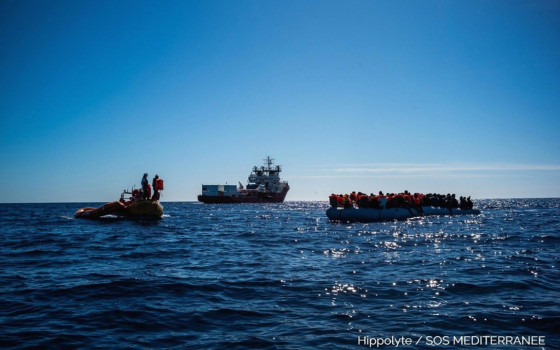
To combat migrant smuggling, EU institutions agree on a greater role for Europol

- Europe and Arabs
- Friday , 26 September 2025 10:22 AM GMT
Brussels: Europe and the Arabs
The Presidency of the Council of Member States and European Parliament negotiators reached a provisional agreement on strengthening the work of Europol, the European police agency, to better support member states in their fight against migrant smuggling and human trafficking.
According to a European statement issued in Brussels, a copy of which we received, the agreement focuses in particular on strengthening information exchange between member states and Europol to improve cooperation at the EU level. The provisional agreement is subject to approval by the Council and the European Parliament.
The new rules amend the mandate of Europol, an EU agency that assists national law enforcement agencies in combating organized crime and terrorism.
Better Information Sharing
Upon adoption, the new rules provide for strengthened obligations to exchange information (on migrant smuggling and human trafficking) between national authorities and Europol. To this end, it now becomes clear that member states, for example when participating in operational task forces or when Europol is deployed on their territory, must make information available to Europol.
The agreement also entails the exchange of information related to migrant smuggling and human trafficking from Migration Liaison Officers deployed by Member States in third countries with Europol. This is another measure to improve coordination in the fight against migrant smuggling and human trafficking.
European Centre for Combating Migrant Smuggling
The Council and the European Parliament agreed to establish a European Centre for Combating Migrant Smuggling as a permanent structure within Europol. The Centre will provide strategic, operational, and technical support to Member States in preventing and combating migrant smuggling and human trafficking. It will also play a role in supporting the identification of trafficking victims or other individuals at risk.
Frontex, the EU border agency, and Eurojust, the EU agency for criminal justice cooperation, are to second liaison officers to the Centre in accordance with their mandates.
Finally, additional human and financial resources (50 staff and €50 million) are expected to be made available to Europol to implement the new tasks.
The two institutions are required to confirm the agreement reached before it is formally adopted. It is estimated that more than 90% of irregular migrants arriving in the European Union use the services of smugglers, and the United Nations estimates that smuggling networks generate profits of between €4.7 and €6 billion annually.
According to the 2023/2024 Risk Analysis Report, more than 15,000 migrant smugglers were reported to the European Border and Coast Guard Agency (Frontex) in 2022.
Human trafficking is a serious crime, often committed within the framework of organized crime. It is expressly prohibited by the EU Charter of Fundamental Rights.












No Comments Found